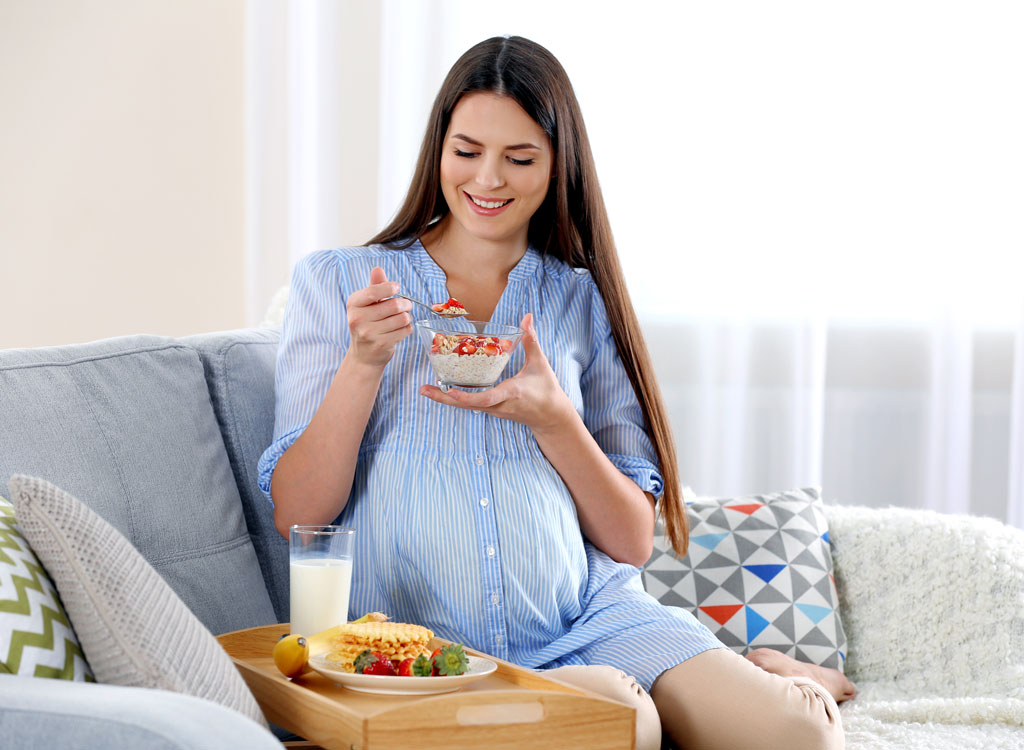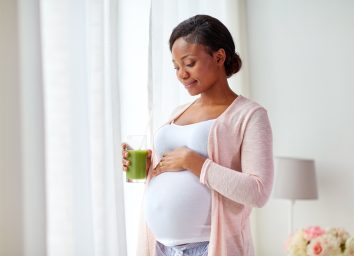The Best & Worst Protein Powders for Pregnancy

The protein powder trend isn't going anywhere, and as women are transitioning into new mothers, many are asking the question: "Can I still have my favorite protein shake during pregnancy?"
Protein powder is a staple in many women's diets. You need protein to maintain the structure, function, and regulation of your body's tissues and organs. So it's no wonder why pregnant women want to make sure that they are getting in enough of this nutrient when they are eating for two. Growing a tiny human and supporting the growth of mom's maternal tissues (like the placenta) puts more protein demands on her body.
At the same time, we've also heard about how certain protein powders can contain toxic contaminants, which is concerning to women and new mothers, alike.
Let's review the science behind whether you can continue to drink protein shakes during pregnancy and what factors are behind some of the best protein powders for pregnancy.
How much protein does a mom-to-be need?
While every person has her own individual protein requirements, in general, experts recommend that women eat around 60-70 grams of protein a day if she is not carrying multiples.
Why do some women use protein shakes during pregnancy?
Put aside any notion that protein powder is just for building muscle after a hard workout. Many women will opt for a protein shake during pregnancy for multiple reasons:
- You're experiencing morning sickness or a food aversion. Often times, protein powder may be the only protein source you can stomach.
- You're tired. If you're too tired to cook up chicken breasts, protein powder is a quick and easy source of protein.
- You're vegan or vegetarian. You may be accustomed to leaning on vegan protein powders to help you meet your protein needs.
Whatever the reason, using protein powder and drinking protein shakes is common during pregnancy, and the question of whether it is safe for mom and baby during this precious time is a common concern.
What are the risks of drinking a protein shake during pregnancy?
When you are pregnant, you need to be more cautious about exposure to contaminants like BPA, lead, and mercury.
Exposing your baby to too many toxins during development may result in some serious outcomes such as:
- Increased risk of preterm birth
- Developmental defects
- Miscarriage
- Hearing challenges
The FDA considers protein powders a dietary supplement. Thus, the governing body does not regulate them to make sure they are safe or effective.
Luckily, non-profit groups like the Clean Label Project have brought transparency to the consumer. This group independently tests products like protein powders for environmental contaminants and brings the results to the public.
Surprisingly, the group found that many organic protein powders contain more contaminants when compared with their conventional counterpart!
Additionally, many protein powder manufacturers are verifying the purity of their product by using third-party companies. You can find this information on the label.
How can I make sure the protein powder I'm choosing during pregnancy is safe?
You can verify the safety of a protein powder by visiting the clean label project's website and checking a specific brand's "score". Alternatively, ensuring the product is third-party certified by NSF can be easily done by checking the labeling of the product.
"While many protein powders are considered safe during pregnancy, you want to avoid those that have added herbs and other ingredients that may be untested in pregnancy or even potentially harmful," according to Melissa Groves, RDN and owner of Avocado Grove Nutrition.
"Assuming you are taking a prenatal vitamin, you should make sure that you are not getting a protein powder that has a ton of added vitamins and minerals, because you shouldn't end up taking more than what you need," Groves says.
Pregnant women should avoid protein powders that contain:
- Herbal supplements
- Fortified minerals or vitamins
- Caffeine
- CBD
- Potentially harmful artificial sweeteners like Acesulfame potassium.
Rice, pea, hemp, whey! How do you pick the best protein powder for pregnancy?
You can use different types of protein powders to meet different needs. Your body may tolerate or absorb each differently, but rest assured that all protein powders will provide you with this essential macronutrient.
Liz Shaw, MS, RDN, CPT, Nutrition Expert & Author of The Stress-Free IVF Nutrition Guide, suggests women "try to choose a supplement that has at least 15 grams of protein per serving." She also emphasizes that working with a nutrition professional "is crucial to ensure that whatever type [of protein powder] you end up choosing is safe."
Whey vs. plant-based protein: does it matter?
Animal proteins provide all essential amino acids and are considered "complete". On the other hand, vegetable-based protein sources generally lack one or more essential amino acids. Some brands of vegetable-based protein powders will add some of the "missing" amino acids to the protein powder's composition, so each brand needs to be evaluated individually.
If choosing a whey protein powder, opting for a grass-fed option will provide mom with some anti-inflammatory omega-3 fatty acids.
Which protein powders do you recommend?
Totally Egg Protein Powder is made with protein derived from both the egg white and the egg yolk. Shaw points out that most women are deficient in the nutrient choline during pregnancy. Eggs are one of the best foods for pregnancy, as egg yolks are one of the richest sources of choline. For this reason, this protein powder is a perfect option for pregnant moms to help them meet their needs.
"Manitoba Harvest makes hemp protein powders with varying protein and fiber amounts", which is appealing to Groves. Hemp provides an excellent source of vegan protein, omega-3 fatty acids, and iron. Bonus: all three are unsweetened protein powders.
True Nutrition protein powders are third-party tested and customizable. Creating a personalized protein mix allows mom to include ONLY the ingredients that she feels safe putting into her body. You'll find detailed information for each option and add-in. Plus, True Nutrition sweetens their flavored options with the pregnancy-safe stevia!
How else can I get protein when pregnant?
If you need some extra protein and don't want to drink a protein shake during pregnancy, there are many protein-rich foods you can add to your diet.
Pregnancy-safe protein foods include:
- Nut butters
- Chia seeds
- Greek yogurt
They can be added to baked goods or used in high protein smoothie recipes to help you meet your protein needs without relying on a supplement.








